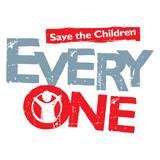
This report has been prepared as part of Save the Children’s Saving Newborn Lives (SNL) program together with Save the Children’s EVERY ONE campaign.
The Status if Community Based Health Workers in Rural Bangladesh provides, for the first time, comprehensive, research-based evidence about the state of community health workers in Bangladesh. It show those areas which need more community health workers generally and demonstrates the need for more health care workers who are trained in essential newborn care (ENC).
The call to deploy, train and equip more health workers is a key component of the Saving Newborn Lives program and for the EVERY ONE campaign in both Bangladesh and globally. Save the Children’s programs in Bangladesh work largely through training and empowering health workers to deliver livesaving interventions for children, and its advocacy issues relate to the availability and capacity of health workers to save lives.
The government of Bangladesh’s Health, Population and Nutrition Sector Development Program (HPNSDP) includes ENC as a key component and calls for universal coverage of postnatal care home visit within 48 hours of birth. We will not see effective implementation of these policy decisions in the areas of nutrition, newborn health and pneumonia without adequate number of trained health workers- particularly community health workers reaching the most remote areas. With a national average of 13.6 community health workers per 10,000 population, and only 5.2 per 10,000 trained in essential newborn care, Bangladesh badly needs more community health workers to provide lifesaving and life changing healthcare in local communities. This data supports Save the Children’s experience on the ground which suggests that the number of health workers in Bangladesh is far less than the need, and that the distribution of trained health workers is inequitable, with remote areas having fewer health workers per capita.
This report is a call to action, asking for more health workers with the appropriate training, particularly in the worst-off area. With this report in hand, we ask for the support of health professionals and civil society to make policy and investment decisions that will ultimately result in better healthcare for millions of Bangladesh’s moters and children.